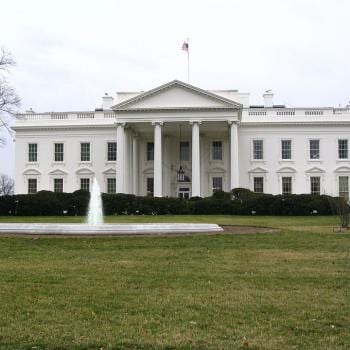I have sometimes heard it said – sometimes jokingly, usually half-jokingly – that only one thing could bring peace to our world: an attack by extraterrestrial forces. Only then, the argument goes, when faced with a threat to all of us, would we human beings at last put aside our differences and recognize our common humanity.
I am no expert in either science or science fiction. Scientists seem divided on the prospect of the existence of intelligent life existing in the universe (though there appears to be a certain consensus that any encounter with it would be catastrophic for us primitive earthlings). As for science fiction, the only ¨alien¨ movie I’ve thus far been able to appreciate is Stanley Kubrick’s classic 2001: A Space Odyssey, in which human evolution is propelled by a mysterious alien race whose motives remain unknown (to me, they are benevolent, indeed godlike beings who, despite their odd modus operandi, really have our best interests at heart. They mean well when they cast us out of the Garden of Eden (when our vegetarian ape ancestors discover the first monolith, which leads them to become violent) and put us through all the turmoil of modern civilization, ultimately sending us a Messiah in the form of astronaut David Bowman transformed as a space baby. (I hope that one-sentence plot summary does not spoil the film for those who don’t know it – really, you just have to go and see it).
Perhaps 2001 resonates with me because its aliens are what I imagine real aliens would be like – highly intelligent beings whose morality, purpose and belief systems are utterly unknown to us humans. I am not sure how we would react were we to encounter such beings. Would we see them as a common enemy and indeed band together? Would we be curious about them and attempt to understand them, perhaps even befriend them? Would we be divided in our responses, and continue our warlike ways in arguing over how to deal with them?
In any case, this depiction of aliens seems quite distinct from the usual science fiction portrayal of them. More often than not, extraterrestrial beings are just a cuter, or creepier, or stranger version of ourselves. And in the light of recent events – President Trump’s decision to pull out of the Paris agreement, the latest terrorist attacks in the UK, and the ongoing reality of war – I cannot help but conclude that the belief in an extraterrestrial attack’s capacity to bring world peace seems overly optimistic. Because the aliens are indeed attacking. But unfortunately, those aliens are us.
I often express frustration at the dominance that the paradigm of the nation state continues to exert in our world. Trump’s ¨America First¨ rhetoric and policies, which are mirrored by the nationalistic rhetoric and policies of many other nations, ignore the reality of our global interconnectedness. Right now I am sitting in a coffee shop where people are consuming beverages that have their origins in Asia and South America. I do not know the origins of the computer I am currently typing on – where its raw materials were mined, where its parts were assembled before making their way to the Best Buy store where I purchased this little machine two years ago. The political borders we draw on maps are as arbitrary as a child’s drawings. We are seven billion people – and counting – on a tiny, overcrowded planet that, unfortunately, we seem hell-bent on destroying.
The Paris Climate Agreement signed last year initially seemed like a sign of hope that the world might at last come together as one in an effort to solve a problem that threatens us all. While the efficacy of this agreement and its ability to deliver on its promises are up for debate, the symbolic statement it makes is clear. By signing this agreement, governments across the world are at least acknowledging that our current path of overindustrialization and overconsumption is leading to drastic consequences that we must at least try to redress. By pulling out of the agreement, Trump is in this area (as in so many others) taking a step fifty or a hundred years back in time, assuring us that there is no human-caused climate change, no real problem with burning coal. Revving up our economy in the present is what matters. Providing ourselves with more comfort and luxury now is what counts. The fact that we are destroying the earth through this economy and consumerist way of life does not matter.
I am usually not outraged by those who deny human-caused climate change, or who argue that volcanos have a bigger impact on climate than anything we do, or who mention that the global temperatures have remained unusually stable in recent geological history, allowing for the flourishing of life as we now know it. What disturbs me is the conclusions they often make from these possibilities, using them to justify a business-as-usual mentality and to defend the status quo of overdevelopment and overconsumption. While some might deny climate change, it seems impossible to ignore the reality that monarch butterflies, who twenty years ago appeared in my neighborhood by the thousands, are now going extinct. The overall destruction of the earth that we are undertaking: the destruction of forests, contamination of our oceans, and the transformation of practically all of creation into a commodity for our consumption is something that we cannot easily deny. Indeed, how many species of plants and animals will we cause to go extinct without even knowing they were there?
There is a scientific consensus that we are now living in the sixth mass extinction (known as the holocene or anthroposcene excinction) that the world has ever known. It began about ten thousand years ago – right around the time our human civilization in its current settled, agricultural form began. Alas, the alien invasion has not brought world peace. The aliens are destroying the world. The aliens are us.
Can this mass extinction be stopped? Should it be stopped? Many would argue – and I would have to agree – that to a certain extent, the destiny of our world is not under control. 99% of the living species to ever have existed have since disappeared; why should we expect that it will be different for us? For Christians, our own Scriptures attest that the world in its current form will pass away. However, they also tell us that, for the short duration we are here, we have a mission and a duty to build up the kingdom of God here, on this broken planet. For too long, we have seen this as a human kingdom only. But as Pope Francis has recently reminded us, we must expand our view to recognize it as encompassing all creation.
So, what can I, a blogger in a coffee shop, or you, a reader who came across this piece while wandering through this strange virtual world we’ve created, do to stop the sixth extinction, or at least make it less painful? Two days ago, on the Feast of the Pentecost, we heard what are, in my opinion, the best words St. Paul wrote: ¨There are different kinds of spiritual gifts but the same Spirit; there are different forms of service but the same Lord; there are different workings but the same God who produces all of them in everyone. To each individual the manifestation of the Spirit is given for some benefit¨ (¨1 Corinthians 12: 4-7).
What we eat, what we buy, how many children we have, and how we travel from place to place all have an impact. We don’t necessarily have to give up all aspects of the life we currently know, but we need to work for change – and lobby governments and corporations for change. And, as a way of starting, we can do something that avid Internet users often find hard: turn off the devices, step outside and look around. We humans don’t have to remain aliens to the rest of creation. If we open our eyes to the sacred presence of God in all life – human and non-human – will we really be able to keep putting up with the desecration we see all around us?















